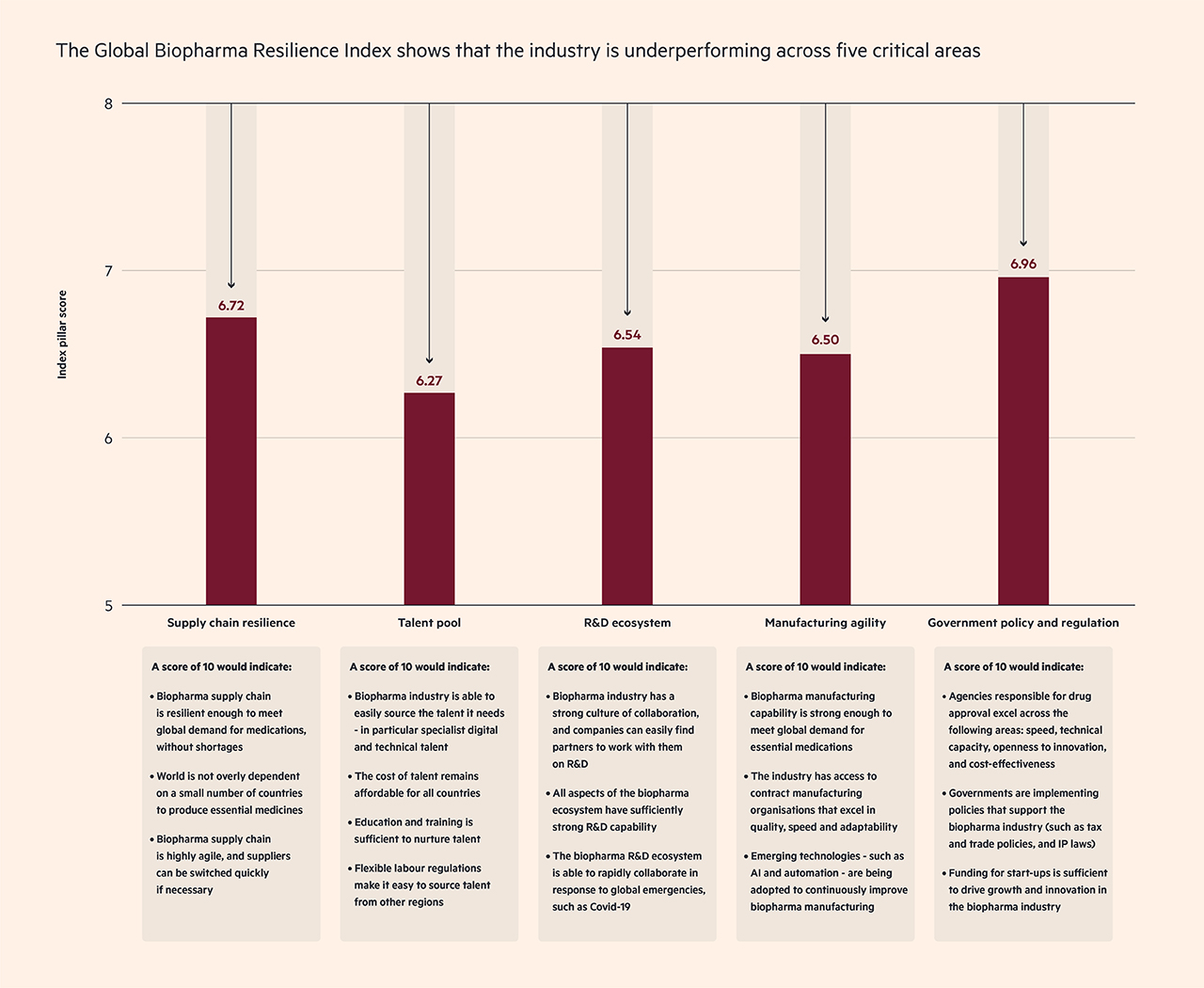Talent is currently the biggest weakness on which the biopharma industry needs to work as it seeks to build resilience. This is a key finding of the Global Biopharma Resilience Index, published in March 2021.
The index – which was developed by Cytiva in partnership with the Financial Times – draws on a survey of over 1,100 senior executives from 20 countries. Across its five areas of focus – supply chain, talent, research and development (R&D) ecosystems, manufacturing, and government policy – talent scores were the lowest overall.
In a series of in-depth interviews and expert discussions, Cytiva gathered a panel of senior executives and other experts to look deeper into the nature of this leading challenge and ways to overcome it.
Why is talent such a pressing but difficult issue for the biopharma sector in so many countries?
Adrian van den Hoven (Director General, Medicines for Europe): Biopharmaceutical production is extremely specialized. You need specialist biochemists, engineers, even people with a lot of IT skills.”
Emmanuel Ligner (President and CEO, Cytiva): The difficulty in accessing talent has been a topic in the industry for a long, long time. It’s not only on the R&D side, but on the manufacturing side and on the technician side. It is hard to find the right talent; it takes time to hire them; and then, once you have hired them, you have to train them. As we come out of the pandemic, the demand for talent is not going to ease.
As you say, Emmanuel, talent as an issue is far from new. That said, how has the challenge been evolving in recent years?
Piers Ingram (CEO and co-founder, Hummingbird Bioscience): Covid-19 has had such a huge impact in all of our minds, but even before that the industry was going through a boom anyway. It’s been driven by the huge progress in biomedical R&D, with all of these new technologies and insights into disease mechanisms and modalities coming online. So, how can our talent catch up with that, as an industry? Typically, you need to go through too many years of school and grad school and beyond, to rise to the very senior levels of the industry as well as to understand the underlying science necessary. Part of the challenge now is finding ways to specialize, as well as making sure that we don’t become an industry where everybody needs to be a specialist in order to be very productive.
Martin Meeson (CEO, Fujifilm Diosynth Biotechnologies): The key thing here, as an industry, is that we are no longer competing for talent with just other biopharma companies. We are competing at a worldwide level. Look at the IT industry. They are probably trying to pull in five times the number of people that we’re trying to pull in, and the two industries are seeking very overlapping skills.
Kiran Mazumdar-Shaw (Chairperson and managing director, Biocon Limited): That’s absolutely true. We are now moving into a digital data driven world, which requires these kinds of data scientists and automation engineers. That’s the kind of talent every company is looking for. We are competing with the IT sector, but having said that, I think the talent pool that we have in India is pretty large.
What kinds of things can industry companies do to address these talent challenges, both old and new?
Martin Meeson: We’re finding it key to make sure that we have strong partnerships with local academic institutions. We do that extremely well across the national situations we have in England and in Denmark, but also very strongly across the US. Amid the competition for talent, though, there’s a real need for the industry as a whole to make sure that people understand what a rewarding and diverse career they can have working in our sector.
Piers Ingram: Overall, of the five areas in the index, I would say talent is the one that needs to change most. The initiatives that other organizations have to reach out and improve training and the industry-relevance of training in universities and colleges make sense. But that’s not something we can do as a smaller organization. We see a need to really invest greatly in in-house training for people wanting to join the company. The way that we need to mitigate the talent gap is very, very strong internal training programs to ensure that we get the skills that we need quickly. The other piece is providing interesting, engaging roles for talent coming into the industry, so people resonate with that, feel they’re having an impact on the world, all while enjoying a great work environment.
Kiran Mazumdar-Shaw: In addition to attracting talent to our own companies, this is also about collaboration and partnerships with IT companies. That’s how we are solving the problem as we focus a lot on digital and data, as well as focusing on digital therapeutics as a big strategy going forward.
